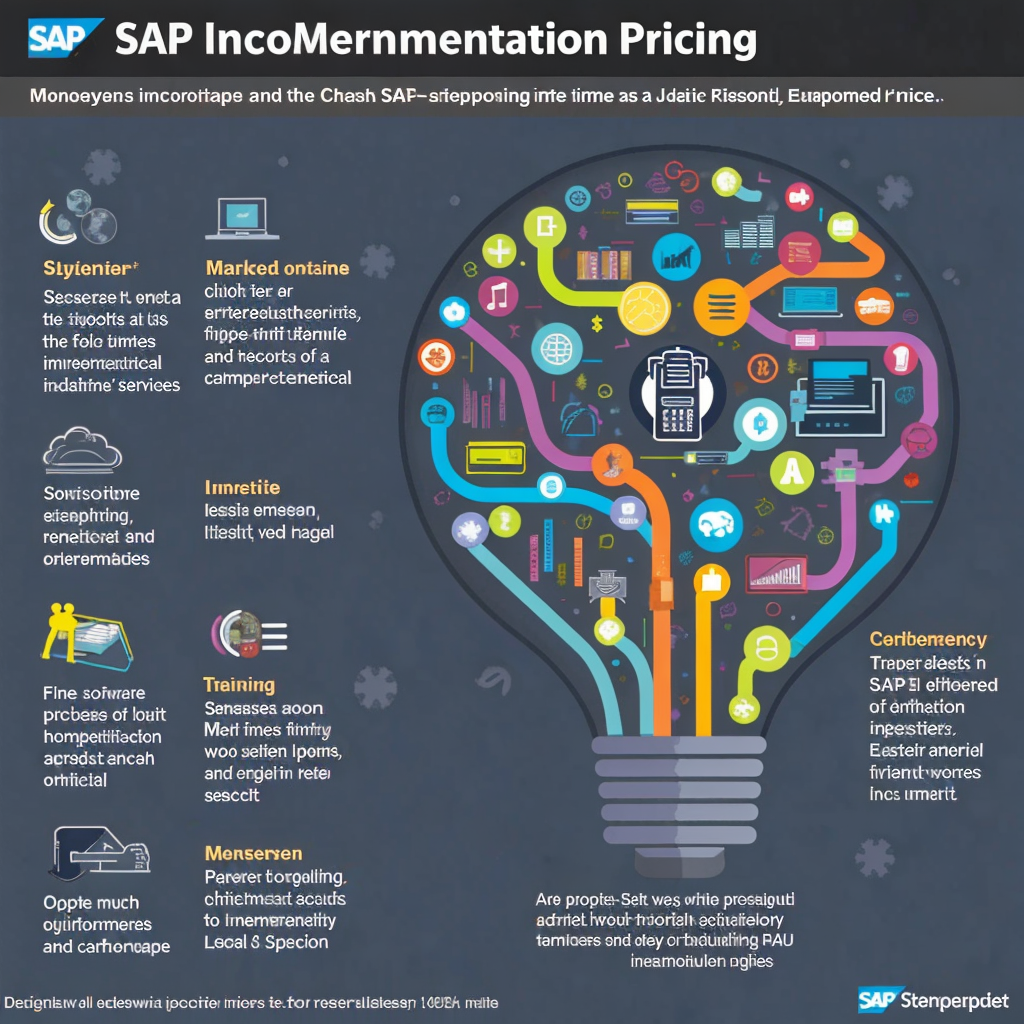Complete guide to the key components of SAP implementation pricing

Implementing an SAP system is a critical investment for companies looking to streamline their operations and drive growth. However, understanding SAP implementation pricing can be complex and involve several key components such as modules, customizations, licenses, and additional variables.Breaking down these components is critical to ensure a clear financial strategy and cost optimization.
Table Of Content
- What is the SAP implementation price?
- Core components of theSAP Implementation Pricing
- SAP Modules and their Pricing
- Example
- Customization: CustomizeSAP to your companyan.
- CostInsights
- SAP License Costs
- Influencing FactorsLicense Pricing
- Implementation and Consulting Services
- Training and Change Management
- Hardware and infrastructure requirements
What is the SAP implementation price?
TheSAP implementation price refers to the total costs incurred by a company to implement and deploy an SAP system. This includes software licenses, hardware, consulting, training and ongoing maintenance. Each component has a different impact on the overall price, depending on the specificRequirements and the scope of the project.
Core components of theSAP Implementation Pricing
SAP Modules and their Pricing
SAP offers a range of modules tailored to various business functions such as Finance (SAPFI), Human Resources (SAP HR) and Supply Chain Management (SAP SCM).
- License costs forModules: Pricing for each module depends on its functionality, with essential modules generally being cheaper. For example, a company that relies heavily on production may prioritize SAP PP (Production Planning) over other modules.
- Usage Level: Module costs may also vary depending on the number of users and scope ofOperations.
Example
For a medium-sized company, the SAP FI module can cost between $20,000 and $50,000 based on usage and required functionality.
Customization: CustomizeSAP to your companyan.
Out-of-the-box SAP solutions may not meet the unique needs of every company. Customization is about adapting the system to specific workflows or industry regulations.
- Complexity of Changes: Complex customizations, such as creating entirely new interfaces or integrating third-party applications, increase costssignificant.
- Time and expertise: Customization requires skilled developers and consultants, often billed on an hourly basis.
CostInsights
The hourly ratefor SAP consultants is typically between $150 and $300, with the total customization cost ranging between10,000 and over $200,000.
SAP License Costs
Licenses make up a large portion of SAP implementation prices.SAP offers two main licensing models:
- Subscription-based licenses: Billed monthly or annually, this model is ideal forCompanies looking for flexibility.
- Perpetual Licenses: A one-time payment model that often includes maintenance fees.
Influencing FactorsLicense Pricing
- User Types: SAP categorizes users into Professional, LimitedProfessional and Employee Self-Service, with prices varying accordingly.
- DatabaseLicensing: Additional license fees apply when using SAP HANA as a database.
Implementation and Consulting Services
SAP implementations are often carried out with the help of experienced consultants orcarried out by an external implementation partner.
- Project scope: Comprehensive implementations that require end-to-end solutions can cost significantly more than partial implementations.
- Consultant fees: Consultants typically charge between $100 and $300 per hour, depending on their expertiseandLocation.
Training and Change Management
Proper training ensures smooth adoption by the workforce.
- Online or on-siteTraining: On-site training is typically more expensive but can be tailored to specific needs
- Material costs: Training manuals, e-learning modules and certifications increase costs.
Hardware and infrastructure requirements
TheImplementing SAP may require upgrading your IT infrastructure to meet demanding requirements.